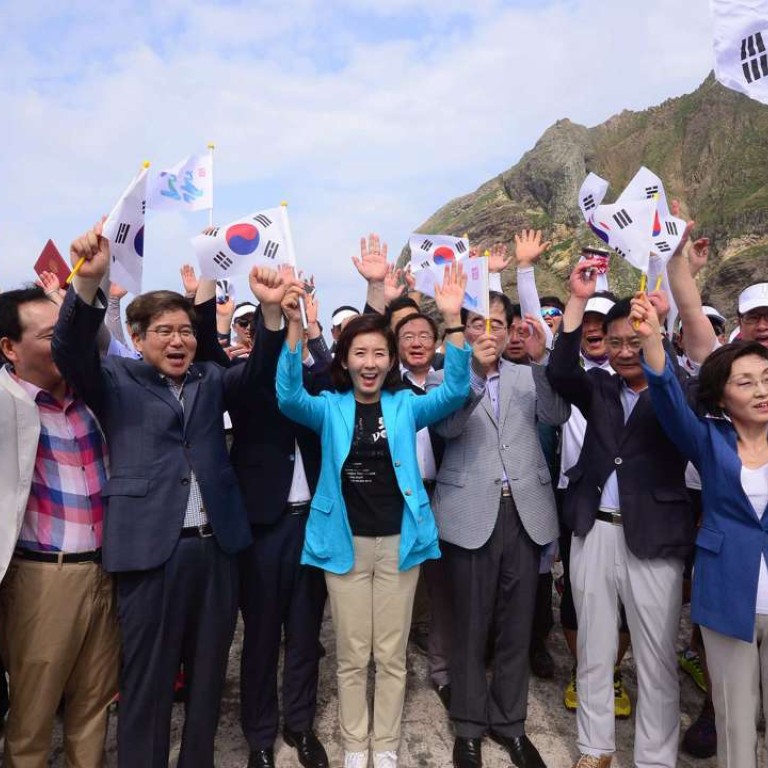
‘Stupid and ridiculous’: Japan groups slam South Korean MPs visit to disputed islets
A visit by a group of South Korean politicians to disputed islets half way between the Korean peninsula and Japan has been described as provocative and “stupid” by nationalist groups in Japan, with some calling for the case to be taken to the Permanent Court of Arbitration in The Hague.
Conservatives here believe that Japan has a strong legal case to reclaim the islands, which are known as Takeshima here but are occupied by South Korea, where they are known as Dokdo.
And they believe that South Korea should be held to the same standards as China has been in the territorial dispute in the South China Sea.
Their visit was stupid and ridiculous because they are completely ignoring the historical record over the sovereignty of the islands
The row over the islets is one of a number of bitter disputes that have tainted relations between Seoul and Tokyo for decades.
“Their visit was stupid and ridiculous because they are completely ignoring the historical record over the sovereignty of the islands,” Moteki said. “And they achieved nothing; this was purely propaganda.”
Moteki believes the “most effective” way for Japan’s sovereignty over the islands to be demonstrated would be for take the matter to The Hague.
“South Korea has refused in the past to agree to international mediation and it is likely they would not take part in a court case, but that is fine,” Moteki said. “Simply for the court to issue a judgement would be enough for the international community to understand their stupidity and unjust behaviour, just as the world has done over the South China Sea situation.

“There, China has refused to accept a ruling in an international law that it has signed, so it is merely showing the world that it is happy to ignore laws.”
“Korean President Park has shown restraint on historical issues over the last few years so I hope she is able to exercise some leadership to constrain her colleagues,” Shimada said.
“But the fact that 10 politicians went to Takeshima only serves to demonstrate her weaknesses.”
Shimada said it is unthinkable that South Korea and Japan would be involved in military action over the islands but he believes the government in Tokyo – and the Japanese people in general – should be more aware of the issue and exert more pressure to have the islands returned.

He also believes that South Korea should be more accommodating towards an ally when both nations are threatened by an unpredictable and nuclear-armed regime in North Korea.
Moteki admits that the islands are unlikely to be willingly returned to Japanese control in the immediate future, but he foresees one scenario in which they may be handed over.
“When South Korea faces a serious situation in the future, then they will need the assistance of Japan as an ally,” he said, hinting at a military clash with the North or even China.
“In that event, there is a possibility that Seoul will agree to return our islands in exchange for Japan’s assistance.”

